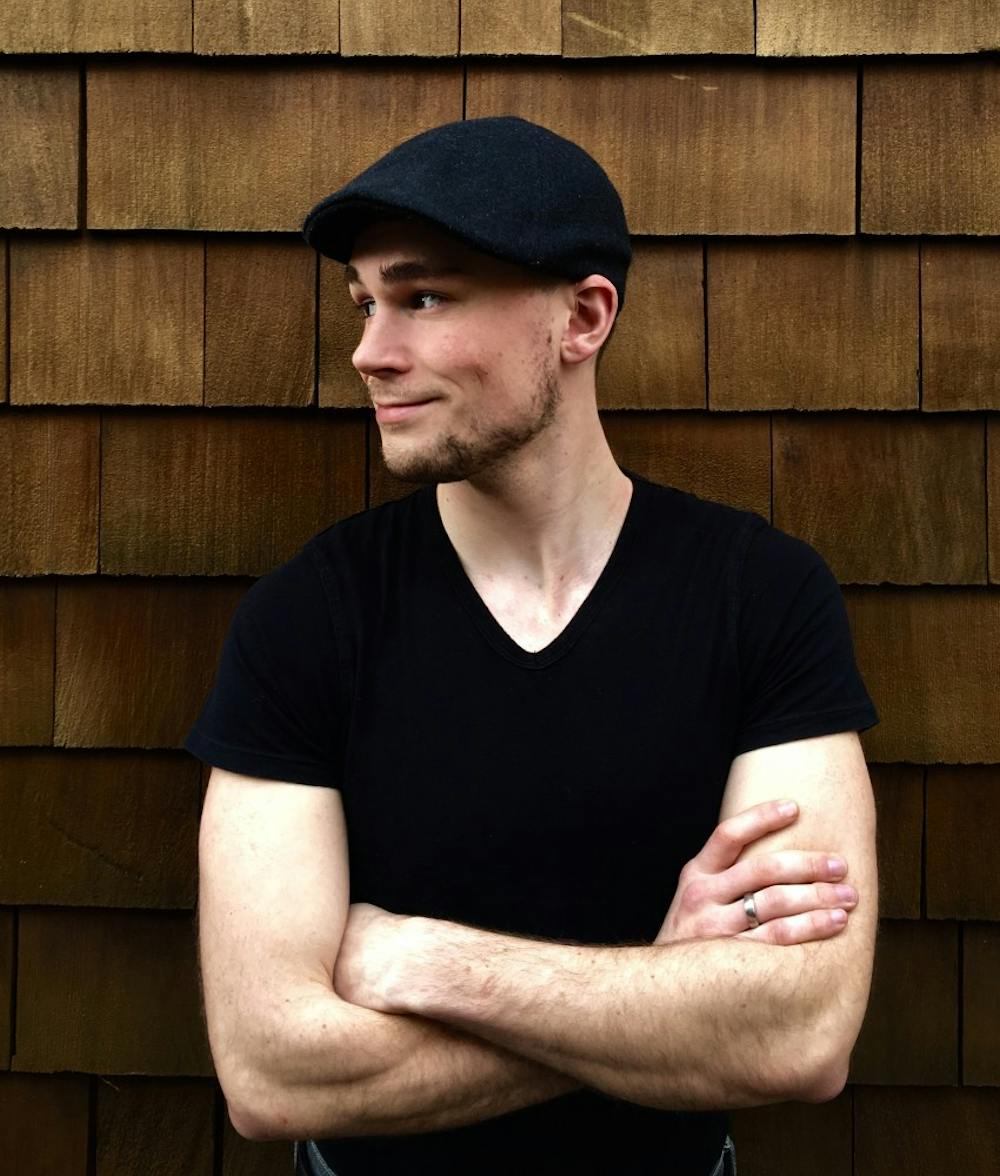by Micah Bobiak |
I know depression. Born with genetic hearing-loss, I made do. Born night-blind, I’ve so often dreamed of seeing stars and constellations to point to. Hearing-aids and night lights kept the fear at bay. It was the life I was given. My family taught me that bullies simply didn’t understand.
When I was 17-years-old I was sitting in a doctor’s office at OHSU, unaware why I had to do it anyway. Something about why I couldn’t see at night. When I was 17 I was getting ready for college, I had a girlfriend, and a lead role in the school play. I was happy.
I can remember the moment I was diagnosed with Usher’s Syndrome perfectly. I can remember despair, like a hole beneath me.
Four years ago I was told I’m going blind. Four years ago, I was told my hearing would fade. Four years ago I lost sight after the age of 35. In mere seconds moving lips and sad eyes crossed lines through dreams I’d thought I’d someday achieve. I could barely hear, watching in shock as my mom and dad melted to tears.
Every strength within me evaporated. My passions became torture, I stopped talking to people, and I barely slept. My life hung on a single word: “incurable.” I stopped eating, my grades fell, and I shut myself away from the world. My future was suddenly a silent, dark world, life without faces, without sounds, or dawns to wake to.
My depression led me to suicide.
A man I’d never met stopped and saved me. He told me that strength isn’t about beating your demons, it isn’t about giving in; it’s about bearing, accepting and fighting. So I’ve fought back. I cherish every day, sight and sound, however small they may seem. I never write off the little things: sunsets and bird calls.
It took more than effort to find surface out of depression. My future haunts me every night. But fear won’t stop me anymore. I have studied abroad three times. I’ve done good things, but I’ve broken the law too. I have heard “weird.” I have heard “asshole.” I have heard “I cheated on you.” I have heard my name dismantled, and seen laughing glances my way. I’ve watched people support me. I’ve heard “thank you,” “help,” and “I love you.” I’ve seen compassion.
I appreciate every single sight and sound I’ve been given. Good or bad, they’re memories I am happy I made. Someday I won’t be able to. But that’s what choosing living means. It means the ups and downs, the rights and wrongs. It means swimming in foreign oceans, late talks with old friends and finding music I’ve never heard. It means crying when crying is right. It means seeing, and hearing while I can. It means family. It means stumbling along with a cane someday and smiling.
The struggle with depression so often feels to be combatting inevitability. It’s true; every broken heart, every stutter, horrifying memory and incurable disease is an anchor pulling us down. It’s amazing how heavy the unbeatable become. But we don’t have to bow under the pressure. We don’t have to be lonely, silent or seeking safe places in death. We can fight.
When life hits you the hardest, you never have to bear it alone. Speak out. Fight back. Ask your friends about their mental health, and give help when someone is in need. Be an active mind, and you could save a life. Yours or someone else’s. We all struggle, let’s struggle together.
https://soundcloud.com/user-417816902/micah-bobiak?in=user-417816902/sets/spring-semester-2016
Micah Bobiak is a senior economics major and can be reached at bobiak16@up.edu. Micah is a member of Active Minds, a group on campus dedicated to educating our community about mental health and demonstrating that people are not alone in their mental health struggles.
Mental Health Resources:
UP Health and Counseling Center: 503-943-7134
Multnomah Mental Health Crisis Line: 503-988-4888
Awareness Resources:
Active Minds: activemindsup@gmail.com or facebook.com/activemindsatup








